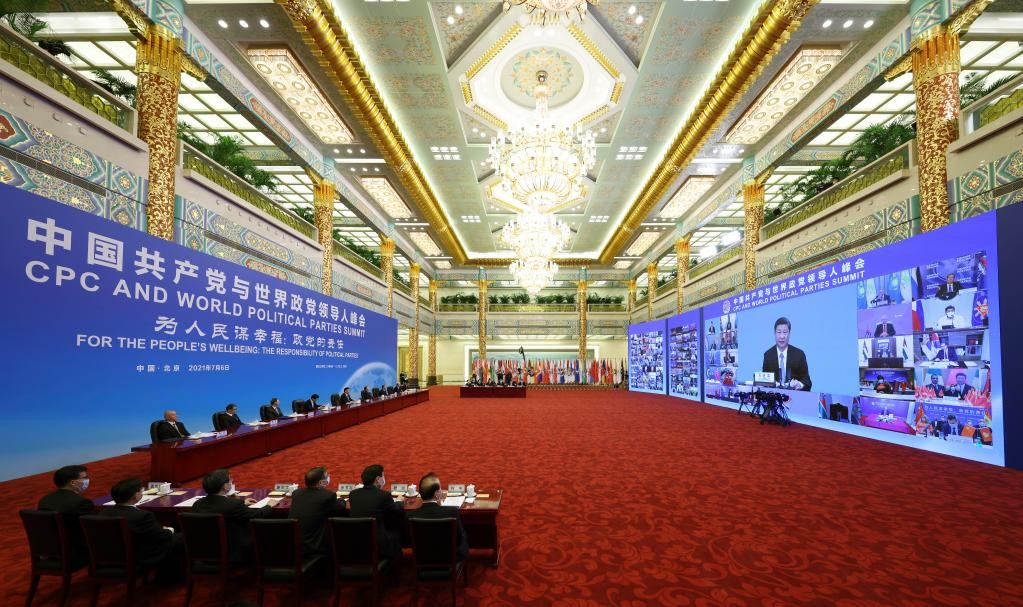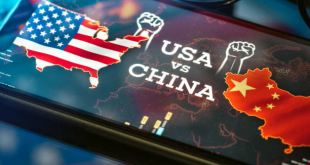By Gerald Mbanda

As the world still grapples with the devastation caused by COVID-19, political parties and organizations from around the world have called on the international community to promote international anti-epidemic cooperation and avoid politicizing the virus origin-tracing.
In a joint statement, seen by Africa China Review, the signatories called for science to be the force that can be relied upon to defeat viruses and wipe out diseases.
Below is the full content of the Joint statement
As COVID-19 continues to wreck havoc across the globe, the current situation is still grave. We, political parties and organisations from around the world bearing the heavy responsibility of improving the people’s wellbeing, promoting national development and safeguarding world peace and stability, have noted with deep concern the recent noises to politicise virus origin-tracing in international anti-epidemic cooperation. With a view to further promoting international anti-epidemic cooperation, we hereby agree to issue a joint statement as follows:
We are of the view that COVID-19 has been the most widespread global pandemic inflicted upon humanity for the past century or so and entails a war that all mankind declares on the virus. We as humans live in a community in which we rise and fall together with a shared future. In the face of major crises, no single country can remain insulated and intact. Viruses know no borders or races. The only way to defeat them is for the international community to work together.
We are of the view that science is the force that can be relied upon to defeat viruses and wipe out diseases. As the coronavirus is a new virus still unknown to humanity and its origin-tracing a serious scientific issue that must be studied by scientists and medical experts around the world through cooperation before any scientific conclusion is drawn on the basis of facts and evidences.
We are of the view that origin-tracing is the shared obligation of all countries. The outline of the next step work plan proposed unilaterally by the WHO Secretariat has neither complied with what is stipulated in the relevant Resolution of the World Health Assembly, nor been consulted adequately with Member States, still less fully reflected the latest research achievements of the global origin-tracing. Hence it is not conducive to offering due guidance for future cooperation thereof. Many countries have expressed their concerns about this. We call on the Secretariat of the World Health Organisation to act on relevant resolutions adopted by the World Health Assembly to advance global origin-tracing study in cooperation with all Member States, while giving full consideration to the emerging new scientific evidences and faithfully following the recommendations of the Report of the WHO-China Joint Mission on Coronavirus Disease 2019. We support medical experts and scientific researchers in carrying out thorough origin-tracing in a professional spirit covering multiple countries and multiple locations, so as to provide necessary reference experience for the prevention of the next possible pandemic.
We are of the view that in the face of the grave threat COVID-19 poses to life, safety and health of all mankind, what the international community needs the most is to defeat the virus with greater solidarity and cooperation. Allowing the politicisation of the tracing issue to run its own course will seriously poison the atmosphere for cooperation on global origin-tracing and undermine the achievements of the joint international fight against COVID-19, which does not serve the interest of any party. We resolutely oppose any attempt of politicisation, geographical labeling and stigmatisation as well the obstruction by any political factor and political manipulation to the research process and the international anti-epidemic cooperation.
We are of the view that while advancing origin-tracing study, we should continue to redouble our epidemic prevention and control efforts. We need to ensure the accessibility and affordability of vaccines in developing countries and see to it that vaccines become a global public good. We appreciate the fact that China and other countries have taken positive moves in providing vaccines to the rest of the world, in particular to developing countries, making important contribution to the global anti-epidemic cooperation. We call on vaccine-capable countries to refrain from imposing export restrictions or resorting to excessive hoarding and to resolutely oppose vaccine nationalism so that the global immunisation gap can be narrowed, and a stronger international fence against the virus can take shape.
We are of the view that political parties and organisations of all countries must shoulder their responsibility to enhance cooperation, work hard to facilitate global anti-pandemic cooperation, policy coordination and complementary actions, so as to inject inexhaustible driving force for the global fight against COVID-19 and the building of a global community of health for all.
We believe that so long as members of the international community look out for each other in the most trying times, humanity will surely prevail over the pandemic, emerge stronger from this dark hour in history and embrace an even brighter future of human development.
End.
 Africa -China Review Africa -China Cooperation and Transformation
Africa -China Review Africa -China Cooperation and Transformation
